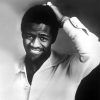calsfoundation@cals.org
Norman Eugene Smith (1931–2014)
Norman Eugene Smith was a classically trained pianist and musicologist from Benton (Saline County). He spent most of his career as a professor of music at the University of Pennsylvania in Philadelphia, specializing in the study of early polyphonic (multiple melody) music and classical piano. His scholarly works focused on musical theory, particularly in music from the twelfth century.
Norman Eugene Smith was born on November 4, 1931, the second son of Fred C. Smith and Ocie Clara Bryant Smith in Benton. As a young man, he began playing the piano. His teacher, Lorene Carson Houston, composed the Benton High School alma mater. Smith quickly became her protégé. As a member of Houston’s Junior Music Club at Benton Junior High, Smith earned high ratings in three annual piano competitions (1944, 1946, 1947) held in Little Rock (Pulaski County) by the National Federation of Music Clubs. At his senior recital, he performed pieces by Beethoven, Bach, Schubert, Grieg, Mendelssohn, Ibert, Debussy, Brazelton, and Chopin. He graduated from Benton High School on May 27, 1949, and performed a piece by Chopin during the ceremony.
He was offered scholarships to Arkansas State Teachers College (now the University of Central Arkansas) and to Hendrix College, both in Conway (Faulkner County). He chose to go to Hendrix College on a fifty-dollar scholarship to study music. Smith graduated from Hendrix in 1953 with a BA in music. He then pursued a doctorate at Yale University in New Haven, Connecticut, studying under professors William Waite and Leo Schrade. Smith earned a PhD in music in 1964; the same day that Smith received his doctorate, Martin Luther King Jr. received an honorary doctorate of law from Yale.
Smith was appointed assistant professor of music at the University of Pennsylvania in Philadelphia in 1964. Smith’s first scholarly publication was “Tenor Repetition in the Notre Dame Organa,” in the 1966 Journal of the American Musicological Society. In 1967, Smith was made director of the university’s graduate studies program. In that capacity, he guided thousands of students to their master’s and doctorate degrees. He held that position until 1983. In addition to publications of the American Musicological Society, Smith’s articles appeared in foreign journals as well. In 1989, for example, Smith’s “The Earliest Motets: Music and Words” appeared in the British Journal of the Royal Musical Association.
In 1991, Smith was awarded the prestigious Lindback Award for Excellence in Teaching by the University of Pennsylvania. He retired in 2000 after the death of his mother and traveled to Benton to settle her estate before returning to Philadelphia. He died in Philadelphia on March 5, 2014, and is buried next to his parents and brother at Benton’s Rosemont Cemetery.
Smith never married or had any children. In accordance with his will, his collection of family photographs, documents, and artifacts, as well as a substantial amount of money, was left to the Gann Museum of Saline County. The donation came with one proviso—that an exhibit on his family be created using the donated items. Smith’s donation allowed the museum’s board of directors to hire a new executive director and researcher to re-open the museum after a long hiatus and to fulfill Smith’s last request.
For additional information:
“Deaths.” Almanac (University of Pennsylvania at Philadelphia) 60 (March 18, 2014). http://www.upenn.edu/almanac/volumes/v60/n26/obit.html (accessed August 2, 2017).
“Mrs. E. H. Houston Presents Norman Smith in a Piano Recital H.S. Auditorium Friday P.M.” Benton Courier, May 6, 1949.
Smith, Norman E. “The Earliest Motets: Music and Words.” Journal of the Royal Musical Association 114, no. 2 (1989): 141–163.
———. “Tenor Repetition in the Notre Dame Organa.” Journal of the American Musicological Society 19, no. 3 (1966): 329–351.
Cody Lynn Berry
University of Arkansas at Little Rock










Comments
No comments on this entry yet.